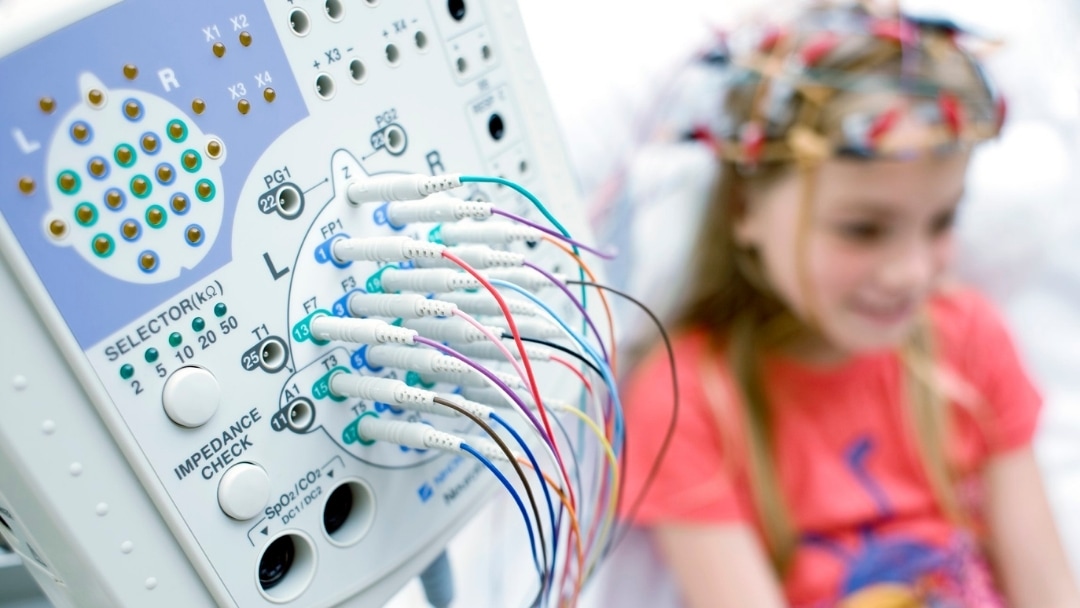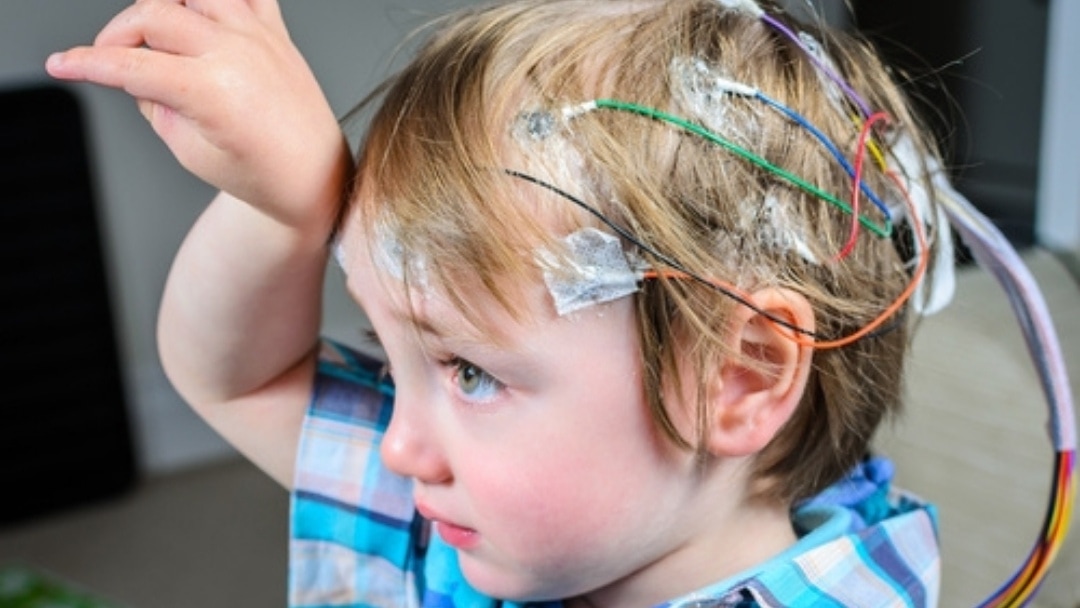What Are Common Neurological Symptoms in Children?
When children do not meet speech/language, motor, or other developmental milestones, doctors usually assume that the child has neurological symptoms. Speech and language issues can be receptive, expressive, or both. Neurological symptoms include, but are not limited to:
- Inability to roll over, crawl, walk, or stand
- Inability to imitate, focus, concentrate, or follow directions
- Low muscle tone (hypotonia)
- Seizures
- Obsessions
- Socialization impairment
- Mood changes
- Behavioral problems
- Non-compliance
- High anxiety
- Coping issues
- Metabolic abnormalities
- Strabismus and amblyopia
The word “neurological” refers to the nervous system, which is comprised of the brain, the spinal cord and a massive circuitry of nerves. The brain, the most complex organ in our body, is the center of the nervous system. Brain symptoms, such as difficulties with word finding or other memory problems, are often the first sign of neurological issues. Certain symptoms also fall under the category of neurological issues, such as:
- Tremors
- Numbness
- Tingling
- Poor reflex responses
The possible causes of neurological issues are many; they could be due to:
- Environmental causes
- Structural causes
- Biochemical causes
- Accident or injury to the brain
- Birth trauma
- Loss of oxygen at birth
- Genetic chromosomal disorder
- Combination of these triggers
Children who display the following symptoms should be evaluated for underlying gut dysbiosis and immune dysregulation by an integrative pediatrician or holistic practitioner:
- Persistent toe walking (always walking on tip-toes)
- Delays in crawling, walking, talking
- Large motor delays–difficulties completing age-appropriate physical tasks
- Sideways glancing
- Sensory defensiveness or sensory-seeking behavior
- Pressure-seeking behavior
What Your Doctor May Tell You About Your Child’s Neurological Symptoms
Your child’s doctor may suggest having your child seen by a specialist, such as a neurologist, a psychiatrist, a speech pathologist, an ophthalmologist, an audiologist, or a geneticist to obtain further information about what is going on neurologically with your child. Your doctor may send you to a pediatric hospital or neurological center.
Most physicians will be insistent that parents act quickly, as time is of the essence when dealing with neurological issues.
Another Way to Think About Neurological Symptoms
Medicine is beginning to understand that neurological issues may not begin in the nervous system, but rather could be the result of broader imbalances in the body that affect the brain. Eminent Harvard neurologist Martha Herbert PhD, MD, questioned whether autism was “a brain disorder or a disorder that affects the brain.”
The Gut-Brain Axis
Researchers today are revisiting what Chinese medicine discovered over 3,000 years ago: that the gut microbiome (housed in the body’s gastrointestinal tract) is critical to overall health, and the gut, the immune system’s headquarters, is tightly connected to the brain. Anything that impacts the gut and the immune system can also impact the brain. This is known as the gut-brain-immune axis.
When the microbiome is healthy, so is the nervous system; when it is not, a person can have neurological, mood or behavioral symptoms–all things long thought to be “all in the head.” The opposite is also true: neurons and neurotransmitters in the brain can affect the microbiome.
Some researchers now realize that traditional psychiatric illnesses, or mental health disorders, are all also related to the relationship between the gut, the immune system and the brain.
When children do not reach their developmental milestones, or when they exhibit ‘brain-based’ or neurological symptoms, think first about what’s happening in the gastrointestinal tract, which, in turn, affects the immune system and the brain.
Autism, ADD/ADHD and SPD Comorbidities
Knowledgeable practitioners have found that roughly 30-50% of children with autism, ADD/ADHD and Sensory Processing Disorder (SPD) also have PANS PANDAS. These are newer diagnoses that your child’s pediatrician or psychiatrist may not be aware of. They are disorders that are loosely defined as a sudden onset of acute anxiety and mood variability accompanied by OCD (Obsessive Compulsive Disorder) and/or tics.
PANDAS stands for Pediatric Autoimmune Neuropsychiatric Disorders Associated with Streptococcal Infections. With PANDAS, the onset of symptoms is typically preceded by streptococcal -A infection (“strep throat”). However, in some cases, children may not have presented with a full-blown, acute strep throat infection. PANDAS is included in the larger umbrella of PANS, Pediatric Acute-onset Neuropsychiatric Syndrome. PANS includes not only PANDAS, but also diagnoses such as Lyme disease, OCD and ODD.
It is very common for younger siblings of children diagnosed with autism, ADD/ADHD or Sensory Processing Disorder to be diagnosed themselves with PANS and PANDAS. If this is the case, consider that your older child may have PANS PANDAS as well. In many cases, these children have both a PANDAS diagnosis as well as that of Lyme disease.
Autoimmune Encephalitis
Another way to think of PANS PANDAS, as well as any neurodevelopmental disorder such as autism, ADD/ADHD, Sensory Processing Disorder and even learning disabilities, is that these disorders may fall under the larger umbrella of autoimmune encephalitis (AE). Autoimmune encephalitis is a disorder in which the immune system attacks the brain, impairing function.
Encephalitis is inflammation and swelling of the brain, often due to infection, which in many of these cases causes an autoimmune attack on the microglia cells of the brain. A child with this type of damage may typically never have or may lose motor skills and/or the ability to speak, similar to an adult who has had a stroke.
Encephalitis is a common symptom of this type of damage, and it often shows up as an increase in the child’s head-circumference percentile, especially in the first year of life. The prestigious science journal Nature pointed this out by stating that “brain volume overgrowth was linked to the emergence and severity of autistic social deficits.”
Anti-NDMA Receptor Encephalitis
The N-methyl-D-aspartate receptor (also known as the NMDA receptor), is a glutamate receptor found in nerve cells. It is activated when the amino acids glutamate and glycine bind to it.
NMDA receptors have been implicated by a number of studies to be strongly involved with excitotoxicity, the process by which nerve cells are damaged or killed by excessive stimulation by neurotransmitters such as glutamate. Excitoxicity can cause encephalopathy and seizures.
Glutamate and its analogs are found in processed foods not only as MSG (monosodium glutatmate), but also in chemical food additives such as:
- Monosodium glutamate (MSG)
- Hydrolyzed vegetable protein
- Soy protein isolate
- Yeast extract
- Gelatin
- Barley malt
- Bouillon
- Natural flavoring
- Artificial flavoring
- Soy sauce
- Others
Neurological Symptoms Healing Checklist
Still Looking for Answers?
Visit the Epidemic Answers Practitioner Directory to find a practitioner near you.
Join us inside our online membership community for parents, Healing Together, where you’ll find even more healing resources, expert guidance, and a community to support you every step of your child’s healing journey.
Sources & References
Hazlett, H.C., et al. Early brain development in infants at high risk for autism spectrum disorder. Nature. 2017 Feb 15;542(7641):348-351.
Hyman, M.A. Is the Cure for Brain Disorders Outside the Brain? Alternative Therapies in Health and Medicine. Nov-Dec 2007;13(6):10-5.
Winter, C., et al. Dopamine and serotonin levels following prenatal viral infection in mouse—implications for psychiatric disorders such as schizophrenia and autism. European Neuropsychopharmacology. 2008 Oct;18(10):712-6.




